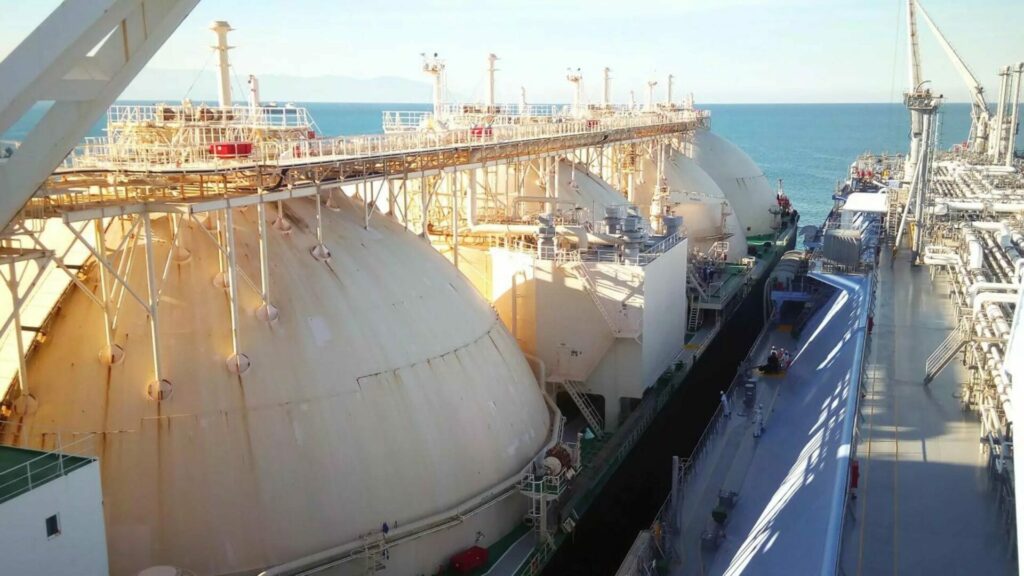With the Nord Stream pipeline likely sabotaged by a foreign power, Russia throttling the supply of natural gas, and Europe making commitments to reduce its dependence on Russian energy imports, Germany is now looking to the future of its energy needs.
In 2023, Germany expects that a new liquified natural (LNG) gas terminal will supply the country with 25 billion cubic metres of gas by the end of the year. While this is a significant step towards reducing dependence on Russia, LNG is costly and this amount represents just 20% of what it once imported from Russia, or half the annual capacity of the Nord Stream pipeline.
Under construction near the port of Wilhelmshaven, on the coast of the North Sea, the gas terminal will be capable of receiving shipments of gas from across the world, namely states such as the USA, Qatar, and the UAE.
A total of five LNG projects were launched this year by the government, at great expense, in order to compensate for the sharp drop in deliveries from Russia’s state gas monopoly Gazprom.
At the Wilhelmshaven construction site, construction is already underway, with some 28 kilometres of pipeline being constructed to connect the terminal to Germany’s existing gas infrastructure. LNG terminals regasify natural gas imported by ships over the sea. Offshore platforms collect the liquid gas and pipe it towards other ships where it is regasified and pumped back onto land.
New LNG infrastructure
Unlike other countries, including Belgium and the Netherlands, Germany did not previously have a viable terminal, benefiting from friendly economic and energy relations with Russia. Before the war, Russian gas accounted for 55% of German imports. These deliveries have now almost completely halted.
The German government has worked hard to conclude agreements on the provision of liquified gas abroad, especially with Gulf countries. Berlin has also put 3 billion towards new ships used to regasify LNG. The German Bundestag approved new laws in the spring to allow for simplified procedures for the construction of the new terminals, due to the unfolding energy emergency in Europe.
Related News
The new terminal is set to be completed by winter, according to German energy group Uniper, which is leading the project. Normally, such a project would take 5-6 years, they note.
Environmental protestors have complained that some of the gas would come from fracking sites in the US, which have raised numerous concerns over safety and sustainability. In August, activists from the German Ende Gelände blocked the Wilhelmshaven construction site, blaming the project for destroying ecosystems and living spaces for porpoises.
Under agreements with the government, the LNG terminal must convert into a hub for green hydrogen by 2030, a cleaner technology which Berlin wants to champion in the coming decades.

